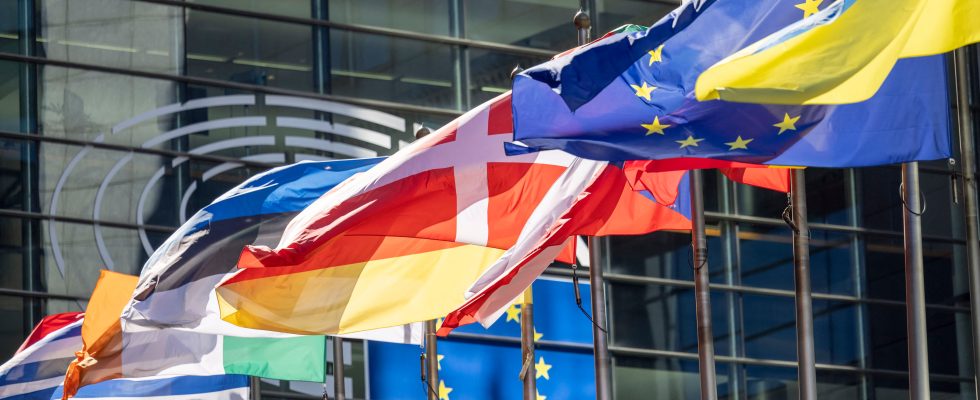Maintain pressure at all costs. And above all, do not let your guard down as the conflict between Hamas and Israel distracts the world’s attention from the war in Ukraine. According to our information, the European Commission is expected to present this Wednesday, November 8, a twelfth set of economic and financial sanctions against Russia. Since the annexation of Crimea in 2014, the 27 member states have put in place an arsenal of restrictive measures that they have continued to refine since the Russian military attack against Ukraine in February 2022: freezing of assets , restrictions or outright embargoes on imports or exports of certain equipment, travel bans, etc. “These sanctions constitute an essential element of the EU’s common foreign and security policy,” explains a senior Commission official.
This slow poison permanently weakened the Russian economy but did not bring it to the ground, contrary to what some anticipated at the start of the war. According to the latest forecasts from the International Monetary Fund (IMF) published in mid-October, Russia should experience growth of 2.3% this year, before slowing to 1% in 2024 and 2025. A performance higher than this what the euro zone should record. If the economic machine ultimately held up, it was because Moscow found new outlets for its products and new sources of supply.
It is also because the tricks to thwart these sanctions have also become more sophisticated. This is the whole point of this twelfth package. On the menu: the addition of around a hundred names to the blacklist of individuals whose assets are frozen, but above all a strengthening of the mechanisms to combat the evasion of sanctions. We have seen trade flows grow exponentially between Western companies and intermediaries based in Turkey, Kazakhstan, Armenia or Kyrgyzstan, who re-export these products to Russia. “The new set of sanctions aims precisely to hit these intermediaries,” explains a source from the European Commission.
There remains the thorny question of Russian diamonds. If exports of oil, gas and even gold, major sources of budgetary revenue for Moscow, were very early hit by the EU, diamonds have until now slipped through the cracks. However, they represent almost 4.5 billion euros in export revenue each year. In the Commission’s sights, the Russian giant Alrosa, the world’s leading diamond producer, which alone accounts for nearly a third of the trade in rough stones. A company controlled by the Kremlin and almost 36% of its revenues before the war were generated in Antwerp. Problem is, Russian diamonds leave the country discreetly to be cut mainly in India, or in the Emirates, before resurfacing in Europe or the United States. In the meantime, they lost their Russian “nationality”.
Member States have been fighting over the issue for almost six months, effectively rejecting the Commission’s proposals. Until now, Belgium was opposed to any idea of sanctions on diamonds, while the Antwerp World Diamond Center (AWDC) waved the red rag of 10,000 job cuts in the sector in Antwerp. According to our information, the Belgian government would today be ready to make some concessions… On condition that this decision is also taken at the G7 level. The Commission could thus propose a direct ban on purchases, in force almost immediately or by January 1, 2024, but also an indirect ban on purchases, the entry of which would be more gradual and which should be based on a traceability system. Russian precious stones. This traceability would be based in part on the Kimberley Process certification system, launched in 2003, to prevent access of “conflict diamonds” to the international market.
In the meantime, this twelfth package of measures must, like the previous ones, be adopted unanimously by the 27 EU member states. However, over the months, dissensions have become more and more numerous. Hungary and now the Slovakia of the new Prime Minister Robert Fico, allied with a pro-Russian far-right party, could complicate the search for consensus. A subject probably on the agenda of the future European Council in December.
